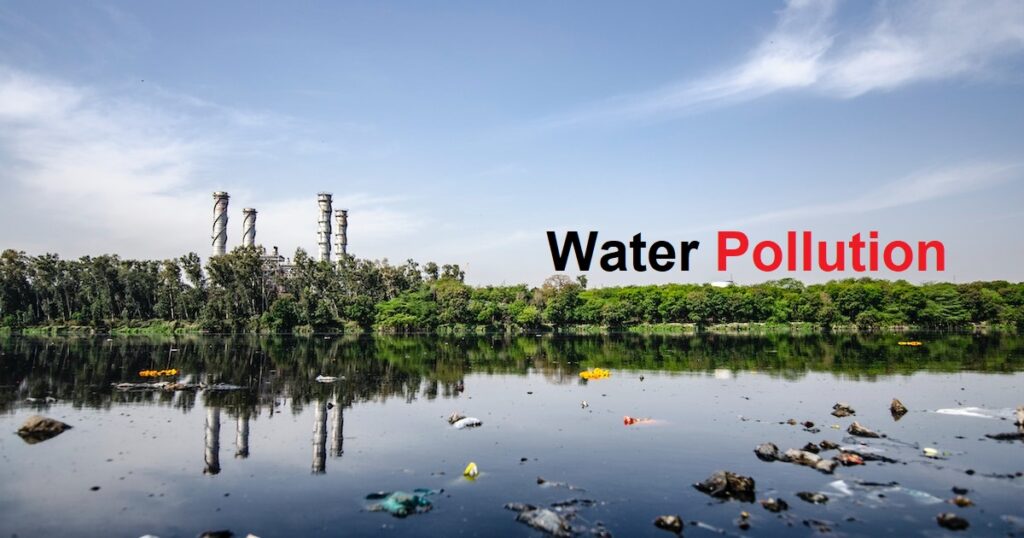Industrial farming, also known as intensive agriculture, is a modern form of farming that relies heavily on chemicals, technology, and large-scale production to maximize yields.
While industrial farming has helped to meet the growing demand for food, it has also brought about a range of environmental risks that threaten our planet. In this article, we will explore the various ways in which industrial farming affects the environment and the measures that can be taken to mitigate these risks.
Land Pollution
One of the major environmental risks associated with industrial farming is land pollution. The intensive use of heavy machinery and synthetic fertilizers leads to soil erosion and compaction, which in turn leads to land degradation. The constant tilling and harvesting of crops also deplete the soil of its nutrients, making it less fertile over time. Furthermore, the use of pesticides and herbicides can contaminate the soil, making it unsuitable for plant growth.
Water Pollution
Another significant risk of industrial farming is water pollution. The use of synthetic fertilizers and pesticides leads to runoff and leaching, which can contaminate nearby water sources. Nitrogen and phosphorus pollution, which are major contributors to algal blooms and eutrophication, is also a concern. Pesticides and herbicides can also seep into groundwater, making it unsafe for human consumption.

Air Pollution
Industrial farming is also a significant contributor to air pollution. The use of synthetic fertilizers and manure leads to the release of greenhouse gases such as methane and nitrous oxide, which contribute to climate change. The constant tilling and harvesting of crops also release dust and particulate matter into the air, which can have adverse health effects. The decomposition of manure also leads to the release of ammonia and hydrogen sulfide, which can cause respiratory problems.
Biodiversity Loss
Industrial farming practices also contribute to the loss of biodiversity. The destruction of natural habitats, such as wetlands and forests, leads to the loss of biodiversity and the displacement of native species. The use of monoculture, where a single crop is grown on a large scale, disrupts ecosystems and reduces the availability of food and shelter for wildlife. The use of genetically
Health Risks
Industrial farming also poses significant health risks to both humans and animals. Exposure to chemicals used in pesticides and fertilizers can lead to a range of health problems, including cancer, birth defects, and neurological disorders. The overuse of antibiotics in industrial farming also contributes to antibiotic resistance, which can make it difficult to treat infections in both humans and animals. Food safety concerns are also a significant risk, with industrial farming practices increasing the likelihood of contamination and disease outbreaks.

Sustainable Agriculture Alternatives
Fortunately, there are alternatives to industrial farming that can mitigate environmental risks while still meeting the demand for food. Organic farming, for example, relies on natural fertilizers and pesticides and does not use genetically modified crops or synthetic chemicals. Agroforestry involves the integration of trees with crops and livestock, which can improve soil health, reduce erosion, and increase biodiversity. Permaculture, which involves creating self-sustaining ecosystems, is another alternative that can reduce the environmental impact of agriculture.
Conclusion
In conclusion, industrial farming poses significant environmental risks that threaten our planet. From land pollution to biodiversity loss, the negative effects of industrial farming are wide-ranging and far-reaching. However, there are alternatives to industrial farming that can help mitigate these risks and promote sustainable agriculture. By adopting practices such as organic farming, agroforestry, and permaculture, we can help ensure a healthier and more sustainable future for our planet.
FAQs
- What is industrial farming? Industrial farming is a modern form of agriculture that relies heavily on chemicals, technology, and large-scale production to maximize yields.
- What is the main cause of land pollution in industrial farming? The intensive use of heavy machinery and synthetic fertilizers leads to soil erosion and compaction, which in turn leads to land degradation.
- How does industrial farming contribute to climate change? The use of synthetic fertilizers and manure leads to the release of greenhouse gases such as methane and nitrous oxide, which contribute to climate change.
- What are the health risks associated with industrial farming? Exposure to chemicals used in pesticides and fertilizers can lead to a range of health problems, including cancer, birth defects, and neurological disorders. The overuse of antibiotics in industrial farming also contributes to antibiotic resistance.
- What are some sustainable agriculture alternatives to industrial farming? Organic farming, agroforestry, and permaculture are all sustainable agriculture alternatives to industrial farming.
